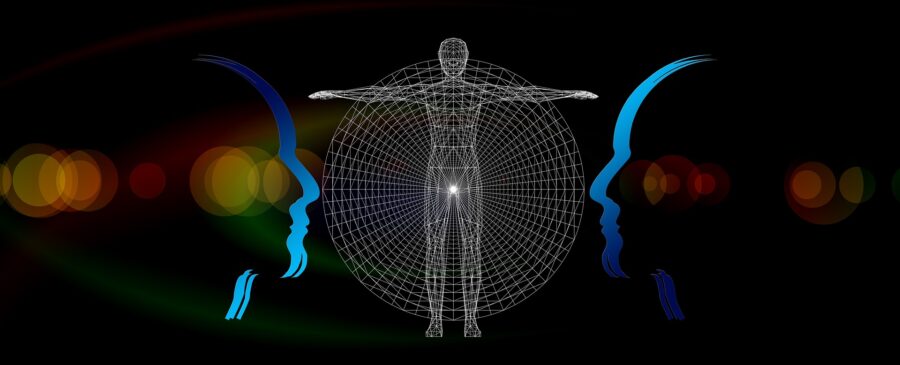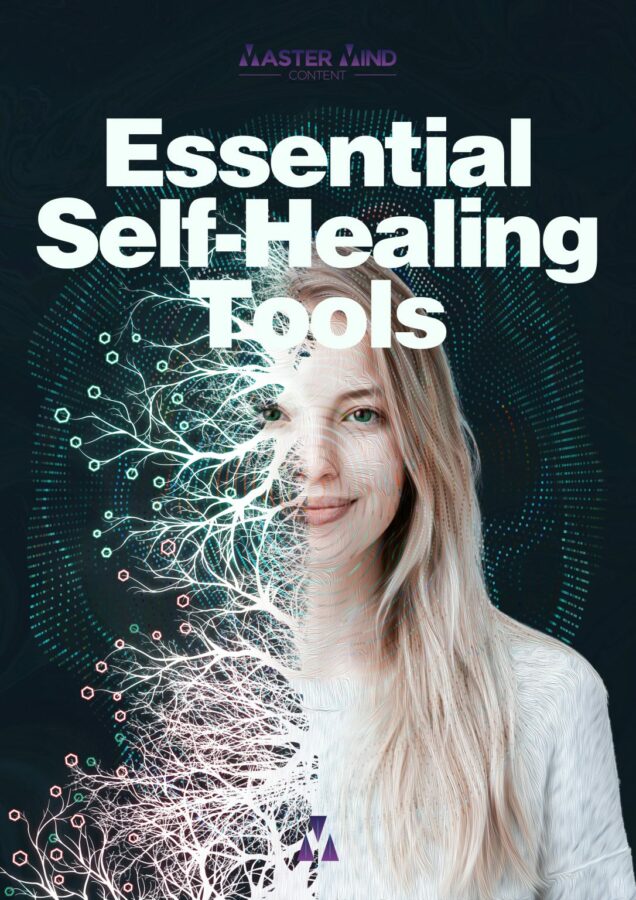
This inner-knowing helps you to develop a skill set that enhances your ability to engage in positive ways with people, build meaningful relationships and navigate tricky social situations.
Subsequently, developing emotional intelligence can have a positive impact on many aspects of your life; personal relationships, career success, and overall well-being.
EI also helps you to better understand and regulate your own emotions and to communicate how you feel more effectively to others.
Self-awareness is the ability to recognise and understand one’s own thoughts, feelings, and behaviours. It involves a deep understanding of your personality, strengths, weaknesses, and values.
More importantly, self-awareness involves understanding how your thoughts, feelings and behaviours impact the experiences you have in life — and the thoughts, behaviours and feelings of others. This helps to improve your relationships and be more empathetic towards others.

When you recognise how you are creating your experiences in life, you are in a better position to change thoughts, actions and emotions that are not working for you. And likewise, continue with thoughts, actions and emotions that are producing the goods.
Self-awareness can be developed through various means, such as introspection, meditation, and feedback from others. You can also use the following tools in the Master Mind Content Essential Self-Development Program:
Self-awareness helps you to make better decisions, and recognise your limitations — but in doing so, identify potential areas for growth which can lead to personal and professional development.
The ability to regulate your emotions and impulses enables you to respond to stressful situations more effectively, communicate clearly, make better decisions, and give you a greater sense of overall well-being.

Self-regulation involves observing your thoughts, emotions, and behaviours in a mindful way that is adaptive and constructive. Doing so gives you the capacity to monitor and control your impulses, resist temptation, and manage your emotional reactions in a healthy and productive way.
The capacity for self-regulation equips you with a calmness that enables you to respond to situations without panicking. Even in stressful situations when your inner turmoil is threatening to overwhelm you.
Self-regulation can be developed through various means using the tools in the Essential Self-Development Program:
Emotional intelligence can have positive outcomes on how motivated you feel. Individuals with high emotional intelligence are able to create a sense of purpose and motivation in their lives that goes beyond external rewards or incentives.
One of the key ways in which EI influences motivation is through self-awareness. Individuals who are self-aware are better equipped to identify strengths, weaknesses, and values, which help to determine goals and aspirations that are meaningful.

You will also be better able to recognise and manage your emotions, stay focused and committed to your goals, face challenges head-on and even bounce back quickly after a setback.
You can develop motivation by using the following tools in the Essential Self-Development Program:
Empathy is the ability to understand and share the feelings and perspectives of others. It involves putting oneself in someone else’s shoes and trying to see the world from their point of view. It has a significant role in building strong, healthy relationships.
People who are cut off from their emotions would be wise to practice and develop empathy. You can do this by active listening. Listen to what other people say and take the time to understand their point of view. Try to understand how and why they feel a certain way, and try to relate their perspectives and experiences to your own.

Empathy is essentially another source of motivation. When you are able to recognise and understand the emotions and perspectives of others — and yourself — you feel a greater sense of purpose and meaning which strengthens your connection to the world around you.
When you develop this state of mind, you find that you are inspired to take appropriate action which can make a positive difference in your life and the lives of others. Empathy enables you to relate to others, communicate effectively, resolve conflicts, and build trust and rapport.
The following tools in the Essential Self-Development Program can help you to develop empathy:
Emotional intelligence is an important skill for social and professional environments. Master your emotions and you will be an effective leader.
People with well-defined EI are able to communicate effectively and clearly with others. They are able to express their own thoughts and feelings in a way that is respectful and constructive, while also being able to listen actively and respond empathetically to the needs and perspectives of others.
Developing emotional intelligence enables you to navigate conflicts and disagreements in a constructive and productive manner. With your emotions in check, you are able to find mutually beneficial solutions.
EI is also associated with being a good team player. You are happy to collaborate on projects and help to create a positive and supportive environment. You’re also able to provide and receive constructive feedback.

